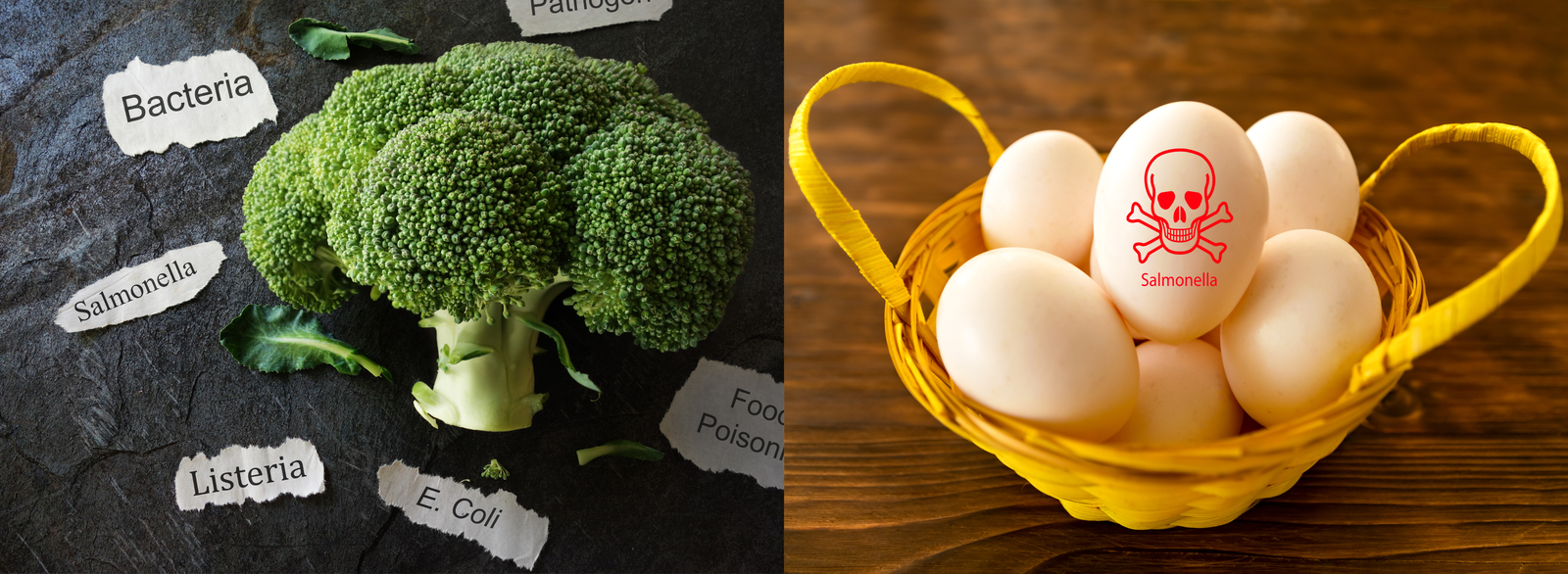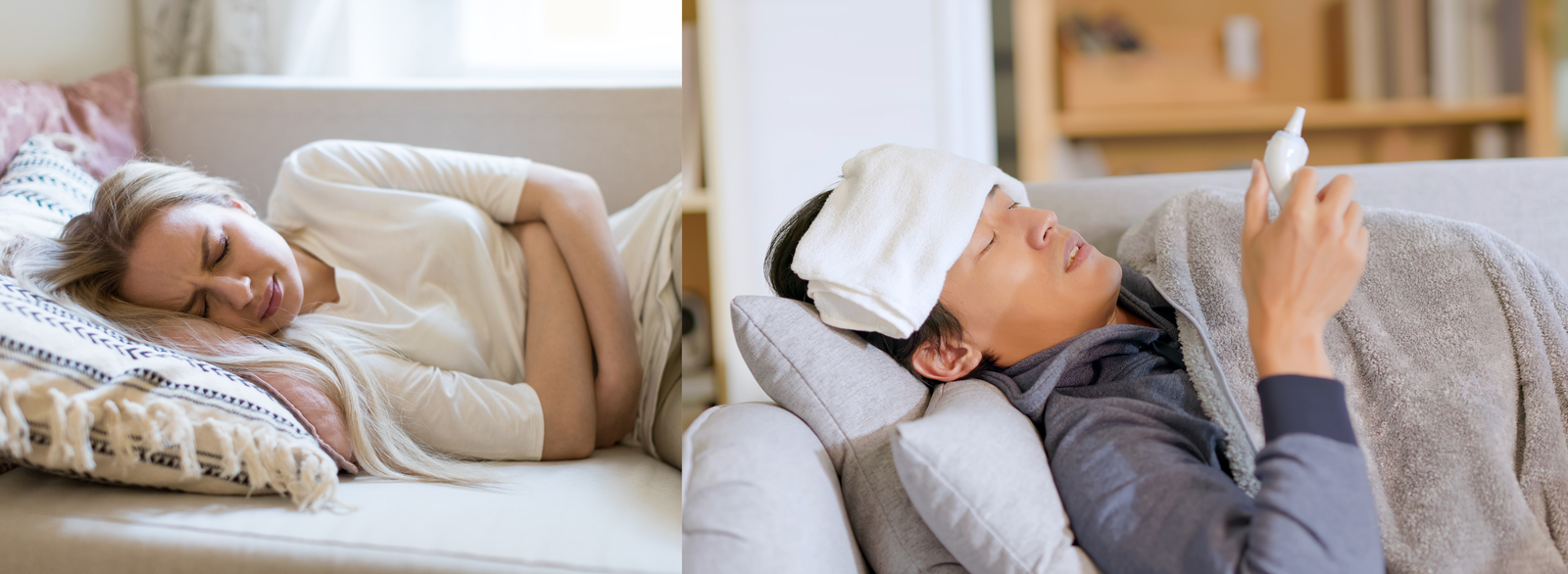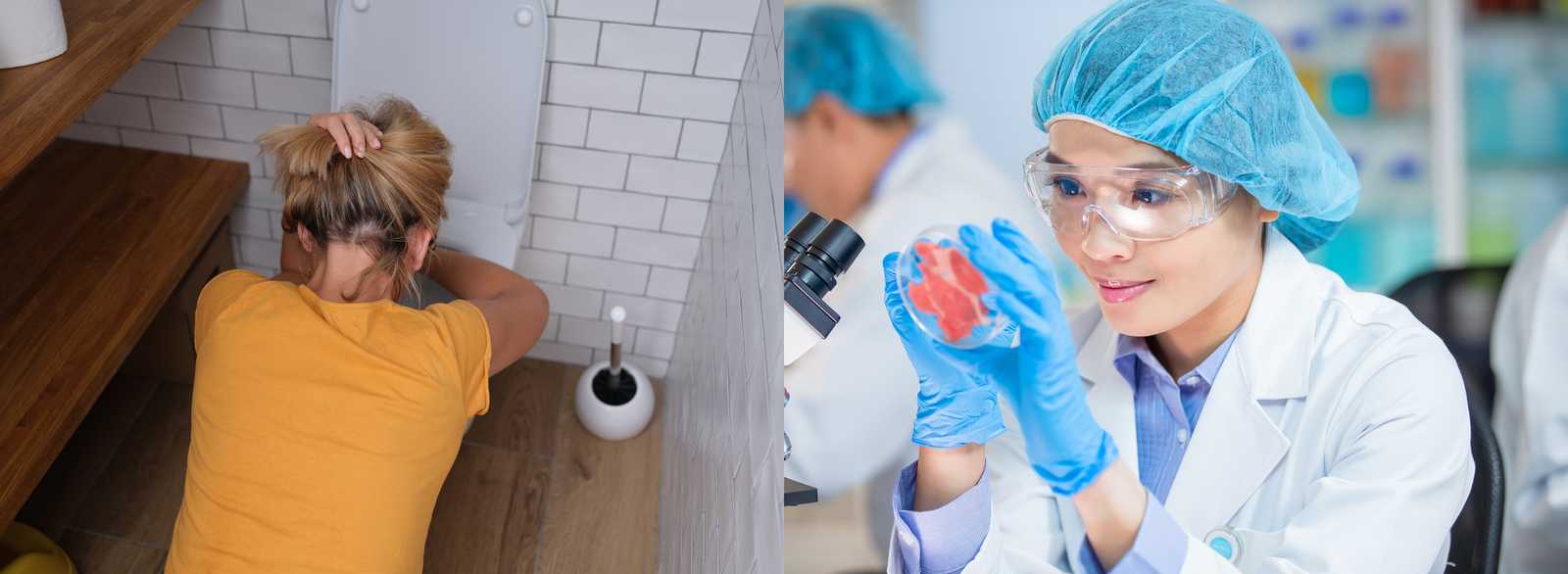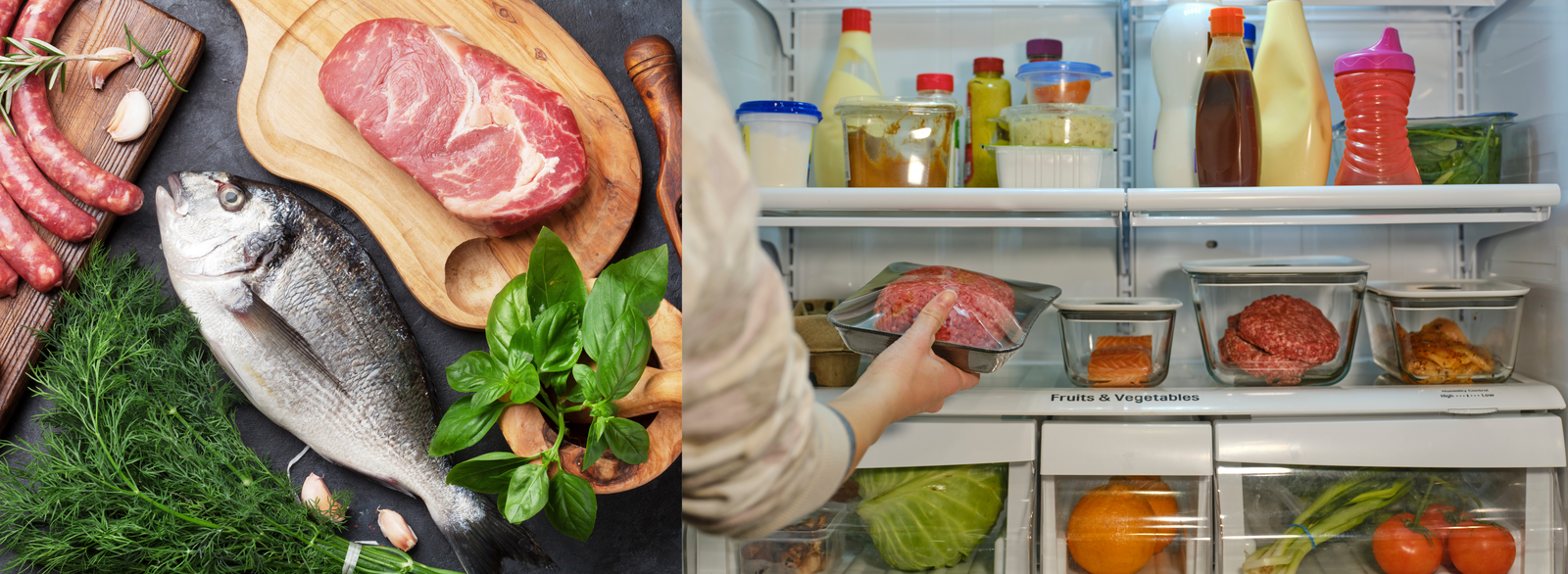We tend to think of sickness bugs as winter illnesses – probably because we spend more time indoors and in contact with people who may be carrying infections, such as norovirus. It is nicknamed the ‘winter vomiting bug’ after all.
But, actually, stomach bugs caused by food poisoning can happen all year round. They’re especially common in summer when warmer temperatures mean the germs that cause food poisoning grow at a faster rate. And of course, this time of year is when barbecues are in full swing, picnics become more popular and hygiene standards can easily slip.
While most cases of food poisoning will clear up on their own, it can be serious.
Just recently (June 2024) an E. coli outbreak in the UK linked to lettuce leaves in supermarket-sold sandwiches, affected 249 people. According to official data, half of those (49%) affected needed hospital treatment and two died.
‘It’s a reminder that food poisoning can be fatal,’ says ZoomDoc GP, Dr Clare Tong.
‘Knowing how to avoid it and what to do if you come down with symptoms is really important, especially if you are abroad and unwell, which is never pleasant,’ she says.
Whether you’re home or away this summer, here’s what you need to know about food poisoning, just in case.
Causes of food poisoning

Food poisoning is an illness caused by eating contaminated food. is rarely serious and usually gets better within a week.
Knowing some of the causes of food poisoning can help you avoid getting it in the first place as it is usually linked to food preparation, storage and hygiene.
Generally speaking, eating food that has been contaminated with bacteria is what will make you sick.
The most common cause of food poisoning is something called campylobacter bacteria but there are other bacteria and viruses that can cause it, such as:
- salmonella
- E. coli
- listeria
- hepatitis E
- norovirus. (Source: FSA)
These can get into your digestive system by eating food that is:
- not cooked or reheated thoroughly so that it is piping hot in the middle
- left out of a fridge for too long or not stored correctly (in a fridge or freezer)
- touched or prepared by someone who’s unwell or has not washed their hands
- already past its ‘use by’ date
Although (raw or uncooked) chicken is often associated with food poisoning, it is possible for any food to cause this illness.
Common culprits are:
- uncooked, lukewarm or unfresh meat, poultry or shellfish
- unpasteurised dairy products
- raw eggs
- fruit, vegetables or salad washed in dirty water, or not washed thoroughly
- contaminated tap water.
Symptoms of food poisoning

The most common symptoms of food poisoning include diarrhea, stomach pain or cramps, nausea, vomiting, and fever.
Food poisoning is one of those illnesses that once you’ve had it you won’t forget it – nor will you want it ever again.
Symptoms include:
- feeling sick (nausea)
- diarrhoea
- being sick (vomiting)
- stomach cramps
- a high temperature of 38C or above
- feeling generally unwell. (Source: NHS)
‘With food poisoning your symptoms may come on within a few hours of eating something – but it can also be within a few days or even weeks later,’ says Dr Clare.
Contaminated food affects people differently, depending on their immune system, underlying health conditions and how healthy your gut is to cope with the bacteria.
Treating food poisoning – and when to see the doctor

If bacteria are eaten via infected food, they grow in and irritate the digestive tract (guts) causing symptoms such as diarrhoea or vomiting.
Although you can feel really unwell during a bout of food poisoning, most cases will clear up on their own with rest and fluids (water, weak squash or rehydration sachets), to avoid dehydration.
It can take a week to feel better and you will need to stay at home until 48 hours after your last episode of vomiting or diarrhoea to avoid spreading it.
If you are getting worse, not better after a few days or are unable to keep any water down, call your doctor for advice.
ZoomDoc GPs are available at a time to suit you. Simply download the app and book an appointment from your bed, from just £35. This can even be done wherever you are in the world – ideal if you’re unwell on holiday and want some advice before seeking further medical help.
Book your ZoomDoc GP appointment here.
If you are off sick for longer than seven consecutive days, you may need a sick note for your employer or HR department.
‘When you’re not well, the last thing you want to do is have further stress getting a doctor’s note for time off work. That’s where ZoomDoc can help with its private Medical Letters service.
‘Just select the one you need, order it online for £45 and you can get it sent the same-day without needing to make an appointment with your usual GP, or even leave the house,’ says Dr Clare.
Off for less than seven days? Don’t forget to self-certify your time off sick.
Top tips to avoid food poisoning this summer
If you’re at home over the summer be wary with BBQs and picnics:
- Wash hands regularly with soap and warm water rather than hand sanitiser – especially before touching food, preparing salads and always before and after touching raw meat)
- Always keep raw and cooked meat separate and use separate utensils
- Make sure meat is fully defrosted before cooking
- Check meat is cooked in the middle and is piping hot – consider cooking some meat such as chicken or port in the oven first, finishing it off on the BBQ
- Do not leave salads or cold foods in the heat or sun for too long
- Use a cool bag with ice packs to keep salads, sandwiches and snacks cool on picnics
- Store leftovers in the fridge as soon as they have cooled down.
If you’re heading abroad these tips may help reduce your risk:
- Drink bottled water – especially in countries where tap water is not safe to drink
- If drinking water is not safe to drink, avoid unpeeled fruit and veg, ice in drinks and salad leaves or garnishes (mint leaves) that may have been washed in tap water
- Check your meat and shellfish is hot enough and cooked properly before eating
- Wash hands regularly – especially before and after eating, handing food or serving yourself at hotel buffets
- Stick to restaurants with good reviews and hygiene practices – or choose street food stalls popular with locals where food is freshly cooked (not sitting out).
ZoomDoc provides a range of Medical Letters on its website – from Recovery Certificates to GP Referrals should your symptoms not clear up. It also has more information about topical health issues on its Healthwire blog.
Whether you’ve had time off sick or are back on your feet, you may find these a helpful read:

